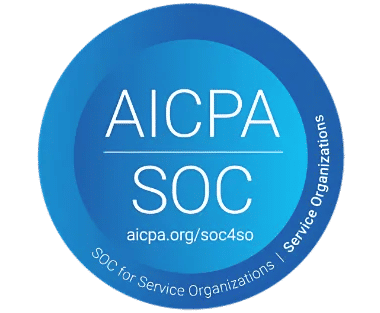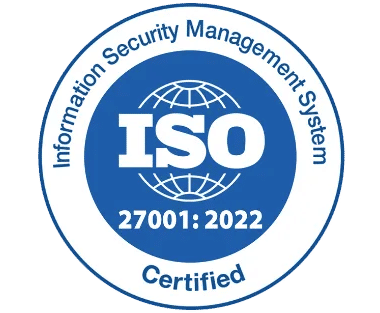Presenting Apps 365's Asset Management in Microsoft Teams
Discover how Apps 365 transforms asset management for end users on Microsoft Teams, resulting in enhanced service delivery and improved employee experiences.

The last two decades of adopting specialized software have fragmented enterprise information, workflows, and service teams. This has led to increased context switching for everyone, resulting in higher costs, frustration, and inefficient service delivery.
In every workplace, the enterprise tech stack has become significantly fragmented, frustrating employees with the multitude of SaaS applications for internal support. Seeking help often means navigating multiple tools, submitting requests, searching for answers in various documents, and following lengthy service request procedures.
At Apps 365, we believe there’s a straightforward solution to this issue: a asset management software that allows employees to get assistance in the tools where they spend most of their time—Microsoft Teams.
A Personal Assistant for Employees in Microsoft Teams
Our AI Assistant leverages context from the enterprise applications that IT and HR teams utilize for their digital workplaces, integrates information from existing knowledge management systems, and accesses service catalog items to deliver personalized and contextual support on demand within Microsoft Teams.
Designed with data privacy and enterprise security at the forefront, the assistant can assist employees in standard channels with common inquiries or provide guidance via direct messaging. This allows IT and HR teams to focus on more strategic tasks instead of repetitively answering standard questions.
The assistant goes beyond addressing simple queries like “What is the holiday policy?” by helping employees tackle tedious tasks such as gathering information from various sources or identifying the right person to contact for assistance when needed.
Knowledge base consolidates enterprise knowledge from multiple sources—SharePoint sites, policy documents, Teams conversations, connected applications, and other trusted knowledge repositories—to generate clear and concise answers to employee problems. IT and HR teams can link their knowledge management systems to Apps 365, enabling the assistant to function as a true support resource. It even learns from conversations in standard channels, continuously updating its knowledge without requiring prompts.
Knowledge Source for Employee Self-Service
While ensuring a simple experience, we have also prioritized safety, security, and compliance. The assistant adheres to the Apps 365 TRUST framework to guarantee that all AI interactions are Transparent, Responsible, User-centric, Secure, and Traceable. This ensures that it operates ethically and securely, delivering trustworthy and seamless AI experiences.
Apps 365 serves as a asset management hub where employees can request everyday services like hardware or software access. IT and HR teams can establish a service catalog and create relevant workflows, such as approval seeking, to expedite resolutions. Employees receive updates on their requests through Teams and can inquire about status.
Instant service with automated resolutions is available for common IT requests like software provisioning, password resets, distribution list access, and more. When employees make such requests, the assistant logs them, obtains necessary approvals (for auditing purposes), and promptly provides solutions to the end user (e.g., resetting passwords, granting software access through Azure AD groups, remotely installing apps through Intune).
An Asset Management Platform for Service Teams

Apps 365 offers a domain-specific AI Assistant designed to manage manual and routine tasks such as case summarization, smart routing, sending approval notifications to approvers, and following up until a decision is made. Service teams receive notifications of incidents, assigned requests, and alerts directly within Teams, allowing for quick action.
- Smart Suggestions: The assistant serves as an onboarding support for new agents, suggesting the next best actions on requests based on helpdesk history. It also assists with filling out attributes and provides writing suggestions to agents while they work on requests.
- Smart Routing: The assistant can intelligently discern user intent and route requests to the appropriate service team without requiring IT teams to manually intervene.
- Smart Incident Clustering: To minimize incident resolution time and disruptions, the assistant can intelligently group related incidents that occur within a short timeframe and notify workspace admins.
- Smart Task Generation: The assistant comprehends the context of problems and related incidents, automatically generating tasks when a problem is created.
Apps 365 provides an integrated Microsoft asset management software that enables the management of assets, incidents, service requests, changes, and problems all in one location. By consolidating the entire employee service record, IT teams gain visibility, control, and improved decision-making capabilities through Apps 365. Our platform integrates various Microsoft tools that IT teams use daily, including Intune for asset management, Azure AD for identity and access, SharePoint for knowledge management.
An Enterprise Automations Hub
Apps 365 can also automate manual, repetitive tasks throughout the enterprise tech stack and enhance the employee experience.
For instance, service teams can utilize Apps 365 to create onboarding workflows that extend beyond essential tasks like granting access to software through Azure AD, setting up Workday profiles, and creating email addresses. These workflows can also include adding new hires to relevant Teams channels and sending personalized check-ins at regular intervals. This enables productivity gains from connected applications without the integration complexity or maintenance challenges typically associated with such projects.
The New Era of Digital Workplace Experience is Here
What we’ve discussed in this article is just the beginning; our goal is to revolutionize the digital workplace experience by uniting people, processes, and platforms through AI automation to reduce operational complexity and drive business success. Who better to partner with in this endeavour than the leader in delivering valuable experiences in the workplace?
Curious to know more visit apps365.com
Frequently Asked Questions
1. How does Asset Management 365 integrate with Microsoft Teams?
Microsoft Asset Management 365 integrates seamlessly with Microsoft Teams, allowing users to access and manage asset-related information directly within the Teams interface. The integration enables features such as tracking asset statuses, managing asset requests, collaborating on asset-related tasks, and receiving notifications about asset updates without leaving Teams.
2. What are the benefits of using Asset Management 365 with Microsoft Teams?
Integrating Asset Management 365 with Microsoft Teams enhances collaboration and efficiency by providing a centralized platform for asset management tasks. It streamlines communication, improves tracking of asset-related activities, allows easy access to asset data, and enables users to stay informed with real-time notifications.
3. Can I perform asset tracking and updates within Microsoft Teams using Asset Management 365?
Yes, you can perform asset tracking and updates directly within Microsoft Teams. Asset Management 365 allows users to view asset details, update asset status, assign assets to team members, and manage asset requests without switching between different platforms
4. How can notifications be configured for asset updates in Microsoft Teams?
Notifications for asset updates can be configured to alert users about important changes, such as asset assignments, status updates, or maintenance schedules. Users can customize notification settings to receive alerts in specific Teams channels or direct messages, ensuring timely responses and efficient asset management.
5. Is it possible to collaborate on asset-related tasks within Microsoft Teams using Asset Management 365?
Yes, Asset Management 365 allows teams to collaborate on asset-related tasks within Microsoft Teams. Team members can discuss asset issues, share documents, assign tasks, and keep track of asset-related projects, all within a shared Teams channel, making the asset management process more collaborative and transparent.
6. What permissions are required for integrating Asset Management 365 with Microsoft Teams?
To integrate Microsoft Asset Management 365 with Microsoft Teams, certain permissions need to be granted, such as access to Teams channels, messages, and files. Admins must configure these settings to ensure that users can perform asset management activities within Teams while maintaining data security and compliance.









_svxLrd-8yH.png)

_2VYSFUTN5m.png)

_JiluXJRGNl.svg)

_2djTKNocf.png)





_Rapo0hRMBy.png)


























